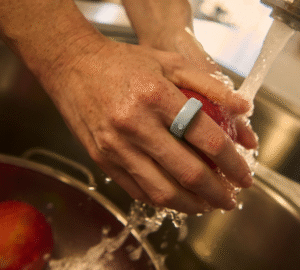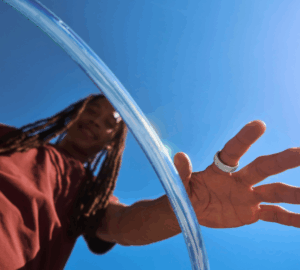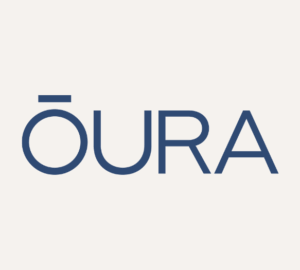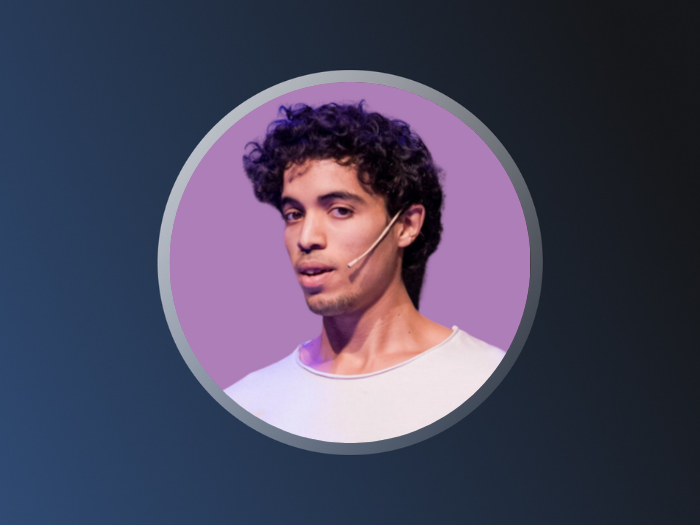Who: Ismail E., 31, machine learning data engineer, Sweden
Surprising Oura insight: Ismail discovered that his HRV increases by over 20% when he spends time with his loved ones, who live in Morocco.
What led you to Oura?
I struggled with insomnia for as long as I can remember. When I read The 4-Hour Body by Tim Ferris, it started me on my journey to biohacking and better sleep. As a data engineer, I was always into math and computer science, but not so much health. But the book taught me about how data can be used to inform health choices, which is what eventually led me to Oura.
Soon after reading the book, I attended the Biohacker Summit in Finland [where Oura was founded] in 2016, where I learned about Oura. Soon after, I got my own Oura Ring.
My biohacking journey has changed the course of my life. I started a company that does glucose tracking, and I’ve founded two non-profits in Sweden that are related to biohacking. Understanding how I can harness data to improve health has been hugely beneficial.
LEARN MORE: What Makes the Oura Ring Different?
How did joining Oura help your relationship with sleep?
First, on nights that I thought I barely slept, I’d see on the Oura App that I actually slept four or so hours. For an insomniac, this can be very reassuring.
Oura also allowed me to see the impact of certain habits. For instance, the impact of blue light in the evening, late-night work, late-night eating, and evening exercise. The immediate feedback that Oura provides for every night of sleep makes it easy to draw connections.
Using Oura taught me the fundamentals of good sleep. For me, this involved:
- Wearing blue light-blocking glasses in the evening
- Using red light bulbs at night
- Sleeping in total darkness
- Exercising in the morning or early afternoon – 4pm latest!
- Using a sauna, or taking a hot bath or shower
- Avoiding stressful stimuli before bed
Aside from the immediate feedback, Oura is also important for my longer-term data collection – I examine my data sing Trends view. I’ve started self-experimenting to see what helps my sleep, heart rate variability (HRV), and resting heart rate (RHR).
READ MORE: How Does the Oura Ring Track My Sleep?
What’s the most surprising thing you’ve learned since using Oura?
One of the most interesting observations I’ve seen is what happens to my HRV and RHR when I’m around family and friends, which I wrote about on Medium.
LEARN MORE: Got a Theory? Test it Out
My backstory: I’m originally from Morocco, but I’ve been living in Sweden for eight years. My whole family is still in Morocco, and I only get to see them once every six months. When I do, my HRV increases, and my RHR drops.
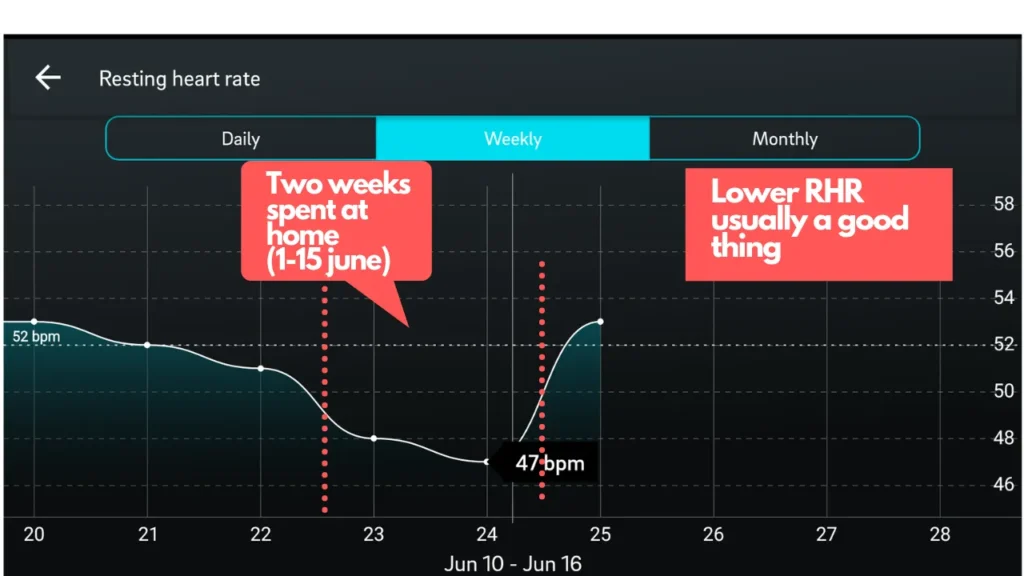
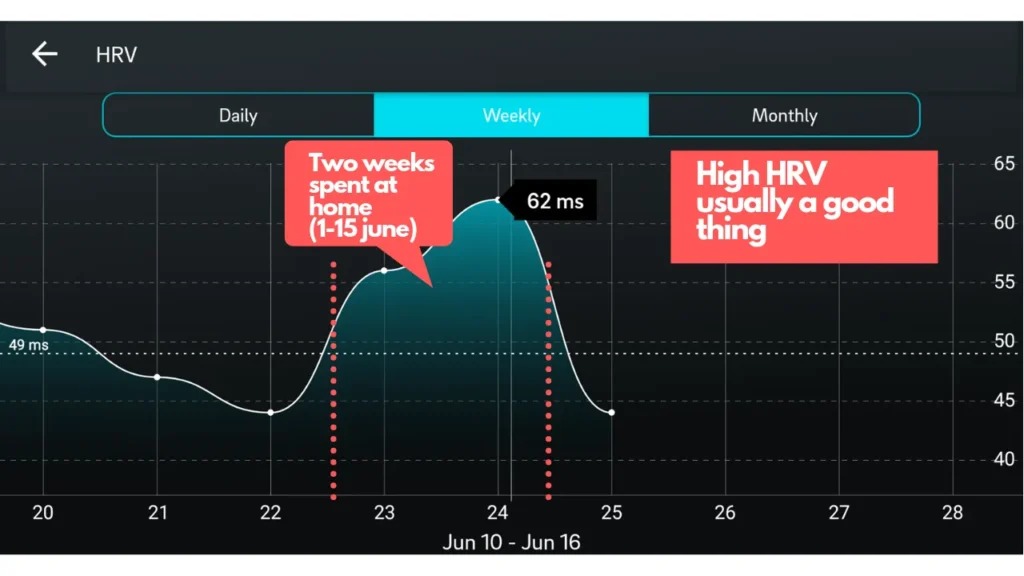
I hypothesized a few possible reasons behind this:
- I was on vacation, so I was more relaxed.
- The environment was better suited to my biology since my ancestors have most likely not been dealing with the cold and darkness of winter in Sweden.
- I was surrounded by people who I loved.
Over the coming years, I was able to test the other variables until I could isolate the true cause: Being surrounded by friends and family.
I took other vacations and noticed a tiny improvement in my HRV and RHR, but nothing significant. When my family came from Morocco to visit me in Sweden, my HRV and RHR mirrored what happened when I went to Morocco. It was clear that it hadn’t been about being in a sunnier climate. The true cause of these changes was being with friends and family. I love Sweden, but I’ve personally felt less social connectedness compared to my home country of Morocco.
LEARN MORE: HRV and Stress: What HRV Can Tell You About Your Mental Health
As someone so in tune with their health, what are your tips for Oura members looking to improve their HRV?
First of all, it’s hard to know which one to prioritize because HRV is highly individual – what works for me may not work for someone else!
For instance, a friend recently visited me who is also an Oura member. After spending time together, I wanted to see if his HRV had responded like mine. My HRV improved, but his scores stayed the same. This goes to show that HRV changes are very individual. Having adequate social connection may affect me more than it does for someone else.
With the caveat that HRV is very personal, here are some additional lifestyle habits that have helped me improve my HRV:
- Exercising regularly, but balancing it with recovery! Exercising too little or too much lowers my HRV.
- Practicing meditation. In my experience, meditation is something you have to be consistent with for a while as you build resilience to stress. So it’s more of a long-term strategy.
- Fasting from time to time.
- Reducing caffeine intake.
- Cold exposure.
- Improving sleep.
It’s all about balance. You don’t want to fast for long periods of time, or exercise too much – your HRV will drop. Finding the sweet spot between stress exposure and recovery is the key to improving HRV.
RELATED: This Breathwork Coach Uses Oura to Measure the Effectiveness of Her Practice: Here’s How
What’s Your Oura Story?
Everyone’s story is unique, and we’d love to hear yours. Share your story here.







